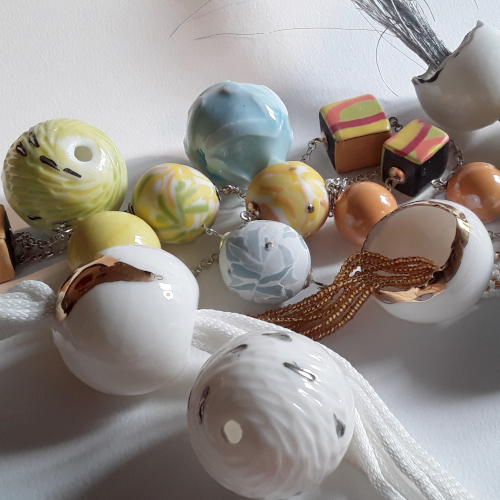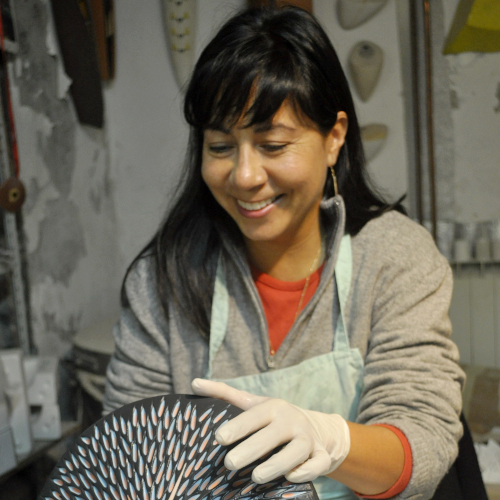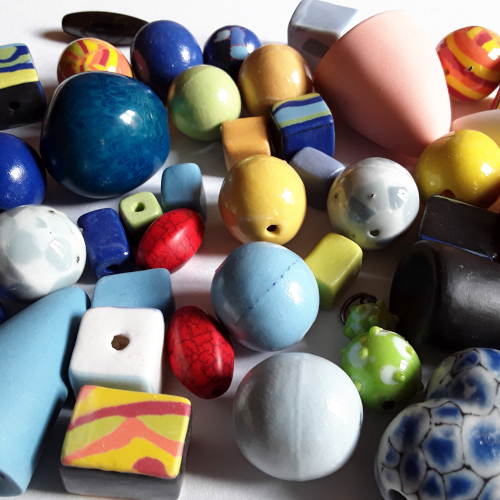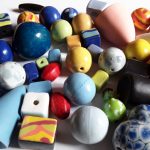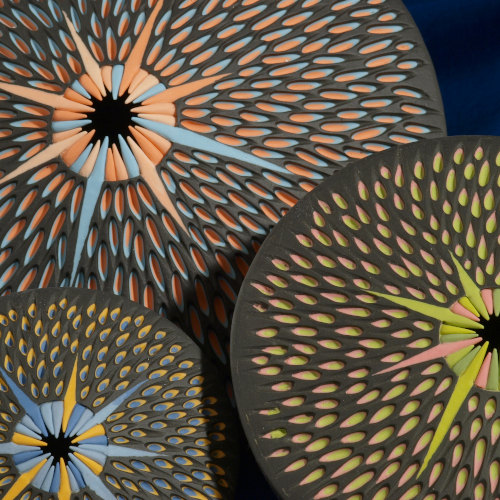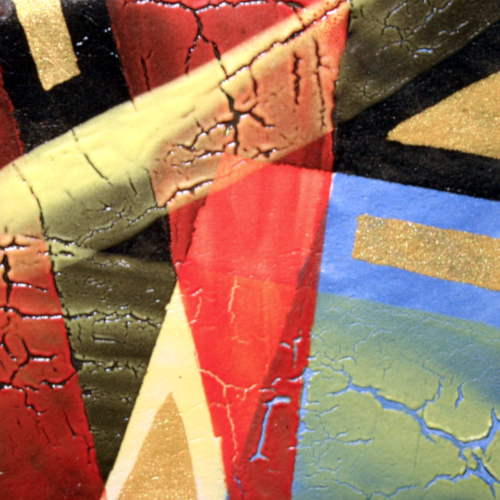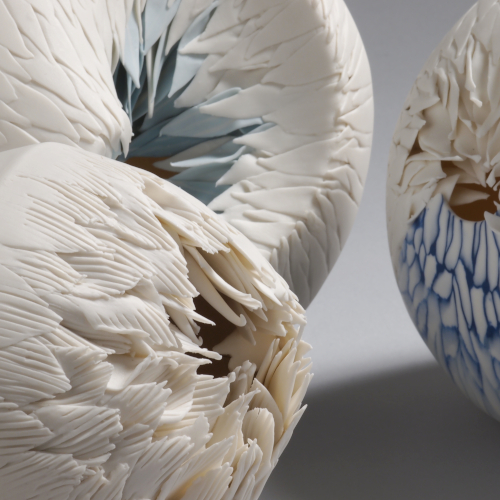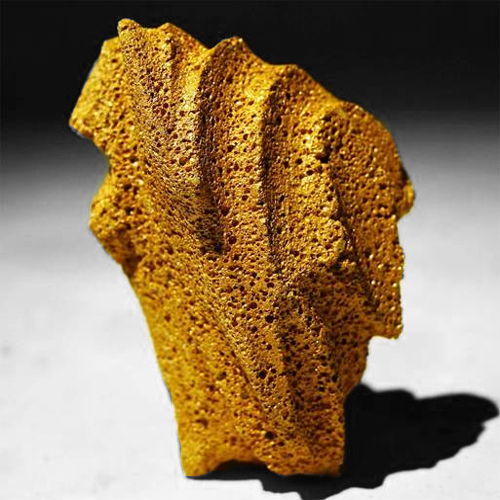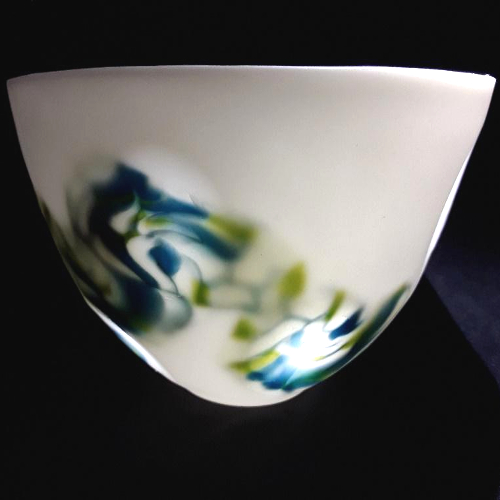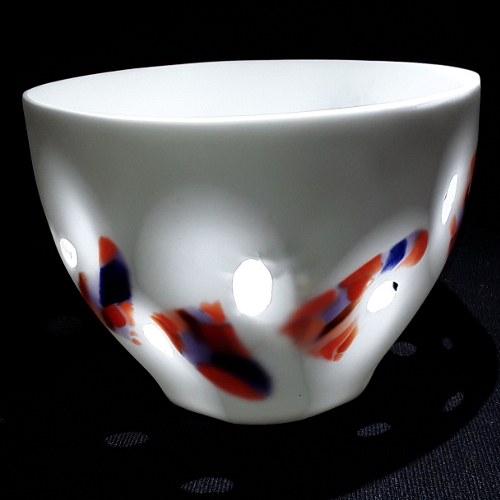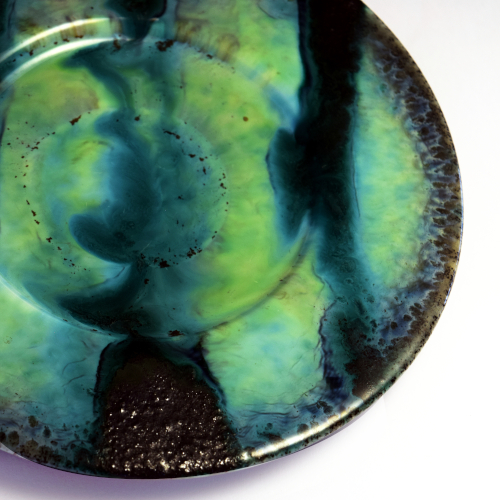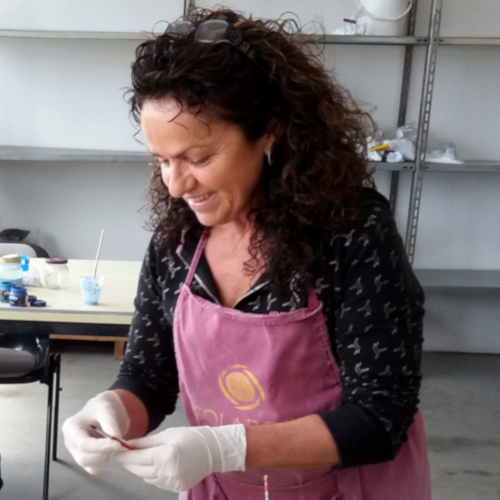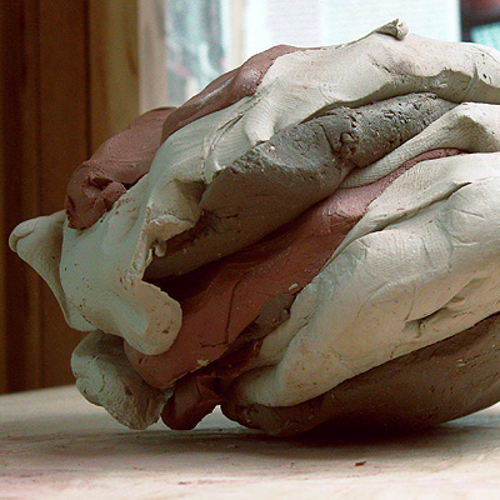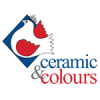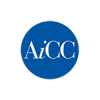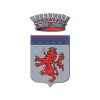THE PEARL, FROM THE BEGINNING TO THE END | Martha Pachon
6-7-8 September 2019
A complex and complete course to make the artist independent of creating large and small series of pearls for jewelery in various shapes, sizes and decorations. Making of molds, testing of slip and body porcelain, firing and decoration. The italian mold expert Florio Bedeschi, will be in charge of the first part of the course for the execution of complex but practical molds for pearls of different shapes and sizes.
A second part related to the use of the mold with the slip and body porcelain, how to firing and diferent kinds of decoration, will be with Martha Pachón Rodríguez.
The 20-hour workshop lasts from 9.00 to 17.00 on Friday and Saturday and from 9.00 to 16.00 on Sunday.
Included in the Workshop cost:
20 hours of teaching | all the necessary materials | firings | nr. 3 brunch lunch | a box with the samples of the materials used during the workshop
Teachers: Martha Pachon and Florio Bedeschi
Languages: English, Italian, French, Spanish
Download the full program in pdf
To confirm your inscription you have to make a bank transfer of a deposit or the total
amount.
Related products
DYNAMIC PORCELAIN | Martha Pachon
22-23-24 February 2019
Inspired by the new developments of contemporary ceramics, both utilitarian and decorative, sculptural or any application that can be made of this precious material, this course is structured as a laboratory of "multiprocesses" to know and master the basic techniques of slip and body porcelain. Understanding porcelain in a practical, direct, easy and fast way will be the goal of this course. Participants will have at their disposal different techniques, some simple and other complex, with and without the use of molds, with the possibility of glazing also in single firing, with theoretical chapter dedicated in detail to all the questions regarding porcelain: drying, breakage, deformation, firing curves, etc.
THE PARTICIPANTS, BEYOND TO BRING HIS FINISHED WORKS TO HOME, WILL HAVE THE RIGHT KNOWLEDGE OF ALL THE RESOURCES IN THE FIELD OF THE PORCELAIN: ITS QUALITY OF TRANSPARENCY, RESISTANCE, REFINEMENT AND WITHOUT GOING CRAZY!The 20-hour workshop lasts from 9.00 to 17.00 on Friday and Saturday and from 9.00 to 16.00 on Sunday.
Included in the Workshop cost: 20 hours of teaching | all the necessary materials | firings | nr. 3 brunch lunch | a box with the samples of the materials used during the workshopTeacher: Martha Pachon Languages: English, Italian, French, Spanish
Download the full program in pdf
To confirm your inscription you have to make a bank transfer of a deposit or the total amount.
FULL IMMERSION IN THE MULTICOLORED PORCELAIN | Martha Pachon
12-13-14 July 2019
One of the finest qualities of porcelain is its sensuality to the touch, plus the surface can be enriched with vibrant colors or sharp contrasts of black and white. There are ancient and complex techniques of the "Neriage" family which, with a modern twist, allow to express, through many aesthetic solutions, from a jewel, a vase, a sculpture, an object, to a complex installation. Among the constructive techniques of colored body porcelain, by hand and with mold will be the contemporary revisiting of: L'Agata, Jasper, Zebra, Nerikomi, Mosaico with composite tiles and Mishima.
To take full advantage of the potential of these techniques, all the possible exercises will be carried out to get to know their strength and refinement. In addition, the realization of all the techniques will be followed by the tricks to avoid problems, breakages or deformations, reaching the maximum of beauty in the colors.
The 20-hour workshop lasts from 9.00 to 17.00 on Friday and Saturday and from 9.00 to 16.00 on Sunday.
Included in the Workshop cost: 20 hours of teaching | all the necessary materials | firings | nr. 3 brunch lunch | a box with the samples of the materials used during the workshopTeacher: Martha Pachon Languages: English, Italian, French, Spanish
Download the full program in pdf
To confirm your inscription you have to make a bank transfer of a deposit or the total amount.
Thousand bubbles
10 and 11 March 2018
Una delle premesse in campo ceramico, fondamento della didattica e della tecnologia stabilisce che non vi devono essere bolle di aria negli impasti ceramici ma...
E' anche vero che la presenza di bolle e la stessa porosità delle argille favorisce l'isolamento termico, l'essiccazione e la leggerezza. Con impasti a struttura spugnosa si ottengono forme facilmente lavorabili a secco/crudo per mezzo del taglio, incisione o abrasione, una lavorabilità a biscotto simile a quella dell'osso di seppia, durezza inaspettata dopo la cottura finale e il peso vicino a quello dei poliuretani espansi.
Da questa scelta parte la possibilità di creare forme legate in particolare al campo della scultura dove i problemi dello svuotamento delle forme viene superato velocizzando le cotture. Infine e in relazione alla dimensione delle microbolle inserite sarà possibile anche l'applicazione di patine, ingobbi e rivestimenti anche vetrosi.
Programma: metodi di realizzazione di schiume e la loro introduzione nelle argille - colatura della schiuma argillosa - essiccamento - scultura a secco crudo per taglio/incisione - cottura ad alta temperatura in forno elettrico - sfornata - applicazione di rivestimento tipo smalto oro - cottura a media temperatura - lezioni di tecnologia ceramica. Per motivi di tempo e aumentare l'esperienza sulla tecnica saranno forniti ai partecipanti anche alcuni blocchetti di argilla porosa già essiccati.
Il corso di 14 ore dura dalle ore 9.00 alle ore 17:00 del sabato e dalle ore 9:00 alle ore 16.00 della domenica. Docente: Maestro Giovanni Cimatti Scarica il modulo di iscrizione in formato pdf Scarica il volantino in formato pdfJasper and Neriage
6, 7 and 8 April 2018
Two techniques distant in time and in geography, one technique, with slip porcelain and another with body porcelain, come together in a complex but fascinating technique with a wide variety of applications, from the unique piece to small series. To make the most of the potential of these techniques: Jasper and Nerikomi, the students will perform different exercises to get to know their fragility, strength and refinement. All the process and derivations for applications to different kind of objects, corrections of cracks, breakages and deformation.
Program: - Totally practical lessons with a theoretical chapter by technology. - Preparation of colored slip porcelain, recipe and percentages. - Preparation of colored body porcelain, recipe and percentages. - Creation of small pieces with different color combinations. - Methods of creating organic or geometric motifs. - Methods of including one technique on the other. - Surface finishing method. - Biscuit firing. - Finishing and corrections after biscuit firing. - Methods of positioning of the pieces into the kiln for high firing. Special features to avoid deformation and breakage. - Finishing and corrections after the last firing.The 20-hour workshop lasts from 9.00 to 17.00 on Friday and Saturday and from 9.00 to 16.00 on Sunday.
Teacher: Martha Pachon
Download the application form in pdf Download the program in pdf
Jewelery in Porcelain
11-12 November 2017
Corso di costruzione di gioielli con le tecniche antiche asiatiche multicolore fino alla sua presentazione finale. Sviluppo ed approfondimento delle tecniche della famiglia del “Neriage” e applicazione in un progetto definitivo per un gioiello. Metodi per preparare gli impasti colorati, processi delle tecniche con metodi di conformazione a stampo, essiccamento, cotture, correzioni di crepe, rotture e deformazione. Montaggio delle diverse alternative e materiali di uso facile e immediato. Agli allievi verranno fornite le parti metalliche e in argento per montare un gioiello completo.
PROGRAMMA: Lezioni totalmente pratiche con un capitolo teorico per tecnologia – riparazione della porcellana ad impasto e barbotine colorate, ricetta e percentuali – creazione dei motivi organici, geometrici o astratti direttamente nello impasto traverso: -Metodi di composizione a blocco, rotolo e forme colorate dell’Arcobaleno – Metodi di costruzione de tasselli composti,uso delle barbotine colorate – Come applicare su stampi evitando crepe e deformazioni – Rifinizione e correzioni dopo cottura biscotto – Metodi di “estivazione” dei pezzi per cottura di alta. Particolarità per evitare deformazioni e rotture -Rifinizione e correzioni dopo ultima cottura.
Cottura (il sabato sera): biscotto, solo dei pezzi realizzati il medesimo giorno ed essiccati, sabato cottura de alta 1250°C, quelli della domenica non saranno cotti, ma è sufficiente per capire la tecnica. Nota: i materiali utilizzati per infornare i pezzi sono soltanto per dimostrazione e cottura Il corso di 14 ore inizia alle ore 9.00 del sabato e termina alle ore 16.00 della domenica. Docente: Martha PachonCERAMIC MAZE: THE GLAZES | Vilma Bosi
20-21 Luglio 2019
Quanta acqua si deve aggiungere nella preparazione dello smalto? Come si deve procedere per fare una buona applicazione? In questo corso vogliamo introdurvi alla smaltatura dei manufatti ceramici fornendo alcune competenze specifiche di base. Partiremo dalla conoscenza dei prodotti (Smalti, Cristalline, Colori, etc.) con le loro peculiarità, inizieremo da come si dove procedere nella loro preparazione e termineremo con la possibilità di provare le principali tecniche di smaltatura e con una guida alla cottura ceramica.
In particolare tratteremo l’applicazione per immersione, per spruzzatura con aerografo e la smaltatura a pennello con l'ausilio di particolari veicoli che consentono una migliore applicazione. Verranno presentati i passaggi necessari per ottenere effetti nei rivestimenti anche con applicazioni in più strati che saranno realizzati su supporti in argilla, già cotti, forniti dall'organizzazione: terracotta, terraglia tenera, terracotta di argilla da gres e semirefrattaria da Raku.
Ed infine saranno affrontati anche i difetti che si riscontrano nella smaltatura e a questo proposito è possibile portare eventuali lavori personali finiti sulle cui problematiche sarà possibile svolgere una interessante lezione.
Compreso nel corso:14 ore di docenza | i materiali necessari allo svolgimento del corso | le cotture | nr. 2 pasti brunch (colazione e pranzo) | una scatola omaggio (con campionatura dei materiali utilizzati durante il corso)
Docente: Vilma Bosi Scarica il programma in formato pdfTo confirm your inscription you have to make a bank transfer of a deposit or the total amount.
Ceramic maze: the clays
27 and 28 January 2018
Fare ceramica è una delle arti più affascinanti, ma occorre avere ben chiare alcune regole e metodologie perchè l’autodidattica è un approccio possibile, ma si può perdere tempo e danaro.
La scelta del tipo di argilla da impiegare nella produzione delle forme è di basilareimportanza e da questa dipendono tutte le altre come la foggiatura, gli smalti e la temperatura ottimale di cottura. Si può scegliere a monte quale metodologia impiegare, ma questo non toglie che la conoscenza delle argille e quindi il loro carattere è assolutamente fondamentale.
Durante il corso avrete l’opportunità di toccare una vasta gamma di argille da cui poter far discendere le vostre scelte future. Il corso si limita quindi alla produzione in libertà di esperienze costruttive, tattili e di cottura sempre sotto la guida del docente.
PROGRAMMA: esercizi personali con vari tipi di argilla con e senza inerti sia per bassa che alta temperatura a colombino, lastra e a stampo – finiture possibili durante le varie fasi di asciugatura – ritiri e plasticità – la deformazione delle forme e il suo controllo – Cottura di alcune esperienze a bassa ad alta temperatura. Lezioni di tecnologia ceramica -dimostrazione di foggiatura a colaggio.
Le forme saranno realizzate seguendo le indicazioni del docente, saranno cotte e consegnate entro i tempi del corso stesso. Il corso di 14 ore inizia alle ore 9.00 del sabato e termina alle ore 16.00 della domenica. Docente: Maestro Giovanni CimattiFull immersion in color
03 and 04 September 2018
From Jasper to Nerikomi in porcelain in two days
One of the finest qualities of porcelain is its sensuality to the touch, plus the surface can be enriched with vibrant colors or sharp contrasts of black and white. There are ancient and complex techniques of the "Neriage"family which, in a modern way, allow you to express yourself through many aesthetic solutions, from a jewel, avessel, a sculpture, an object, or a complex installation. It will be the very intense and rich post-Argillà course,among the techniques dealt with: the Jasper, the Rainbow or Scala, the Zebra, the Nerikomi and the Mosaico with composite tiles.
PROGRAMMA: - Preparation of colored porcelain bodies, recipes and percentages and how to avoid the melting or deforming pieces. - Use of color both into the body and slip porcelain, tricks. - Preparation of shapes, cuts, joints, lines, drawings and compositions for all possible ancient Asian techniques revisited in contemporary way with modern and practical use. - Agate, Jasper, Mishima, Mosaic, Rainbow, Scala, Zebra and Nerikomi techniques. - Cleaning and tricks to avoid color contamination, air bubbles, deformations or cracks. - Preparation of colored slip porcelain and use. - Conformations with net black and white avoiding contaminations of one color with another. - With the use of the mold and without, application of the techniques learned. - How to install the colored pieces inside the kiln avoiding the attachment of the pieces or accidents. - Types of firing, low and high, firing curves for pieces built by colored mix techniques. - Finishes and corrections before firing, after first firing and even after the last high temperature firing. - Recipes and possibility of restoration of broken pieces. Teacher: Martha Pachon Languages: English, Italian, French, Spanish Download the application form in pdf Download the program in pdf
